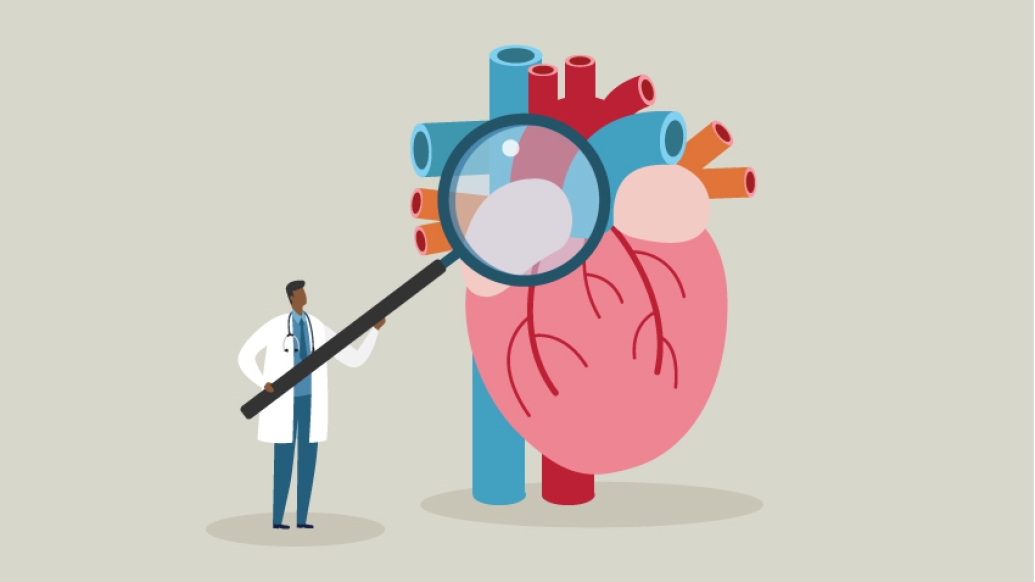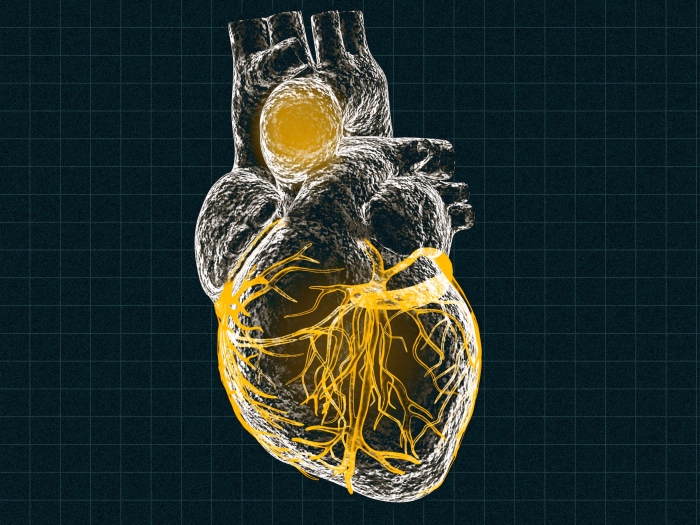A Michigan Medicine cardiologist talks about several warning signs that might indicate a man needs immediate care.
7:00 AM
Author |

When it comes to cardiovascular health, men and women have many of the same risks.
After all, everyone faces the challenges of managing weight, blood pressure and cholesterol, among other factors — and heart disease remains the No. 1 cause of death in both sexes.
LISTEN UP: Add the new Michigan Medicine News Break to your Alexa-enabled device, or subscribe to our daily audio updates on iTunes, Google Play and Stitcher.
But as women have unique heart health concerns (including pregnancy-related complications and subtler signs of heart attack), other issues are specific to or more common in men.
Men's heart health risks include:
-
A greater risk of heart attack, and experiencing heart attacks earlier in life. Far more men than women are smokers — and they lack the estrogen that helps protect women from heart attacks at a younger age.
-
Developing cardiovascular disease seven to 10 years earlier than women do. That can put men at elevated risk for related issues as much as one decade before their female counterparts of the same age.
-
Compared with premenopausal women of the same age, men typically have higher blood pressure. High blood pressure forces the heart to work harder, raising the likelihood of cardiovascular disease over time.
That's why good lifestyle habits and regular checkups to ensure a healthy body are key.
"I tell men that if their goal is to lead a long, high-functioning life, it's really important to work with your health care provider," says Geoffrey Barnes, M.D., a cardiologist and vascular medicine specialist at Michigan Medicine's Frankel Cardiovascular Center.
MORE FROM MICHIGAN: Sign up for our weekly newsletter
In addition, men and women alike should get 30 minutes of exercise five times per week, eat a heart-healthy diet, abstain from smoking and see their doctor when concerns arise.
Barnes spoke more about three problems that men shouldn't ignore:
Abdominal aortic aneurysm
This disease occurs when the abdominal aorta, a crucial blood vessel that feeds the legs and lower body, starts to enlarge.
SEE ALSO: A Doctor Explains What Makes a Heart Attack a 'Widowmaker'
"When it gets too large, it's at risk for rupture, and that can be deadly," Barnes says.
The risk of abdominal aortic aneurysm is more common in men ages 65 and older — especially those who smoke or who once smoked. Such aneurysms might have no symptoms at first; abdominal or back pain may occur as an aneurysm grows.
If your physician suspects an aneurysm, an ultrasound may follow. Fortunately, a positive diagnosis "can be pretty easily fixed" with minimally invasive surgery, Barnes says.
I tell men that if their goal is to lead a long, high-functioning life, it's really important to work with your health care provider.Geoffrey Barnes, M.D.
Peripheral arterial disease (PAD)
A vascular disease that causes blockages in the arteries to the legs because of plaque buildup, peripheral arterial disease can start to develop with age.
"The main thing men need to look for is their legs are feeling weak or achy as they walk," Barnes says. "Listen to your legs. If they hurt, talk to your doctor."
Often a red flag of more serious conditions including atherosclerosis — a hardening of the arteries that can also prevent blood flow to the heart and brain — PAD can lead to heart attack or stroke if left untreated.
Which is why treatments focus primarily on lowering a patient's risk factors. Those strategies include medications and lifestyle modifications. Patients with severe PAD may need surgery to reopen or bypass a blocked artery.
Erectile dysfunction (ED)
Whether they're unable to maintain an erection for an extended period or at all, some men may be embarrassed to talk about the issue with a partner, let alone a physician.
But because the penis is a vascular organ that receives blood flow from the heart, erectile dysfunction shouldn't be ignored — and it can suggest a more serious problem.
SEE ALSO: Heart Attack vs. Cardiac Arrest: Do You Know the Difference?
"ED can often be the first symptom that you have underlying vascular disease," Barnes says.
Working with a urologist to treat ED, your primary care doctor or cardiologist can identify and help manage possible causes. Among them: diabetes, obesity, alcohol, smoking, high blood pressure, high cholesterol or low testosterone, all of which contribute to heart disease.

Explore a variety of health care news & stories by visiting the Health Lab home page for more articles.

Department of Communication at Michigan Medicine
Want top health & research news weekly? Sign up for Health Lab’s newsletters today!





